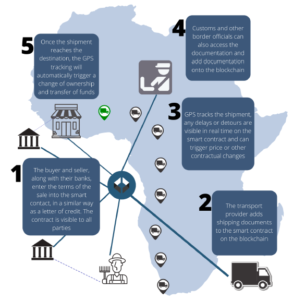The Protocol on E-Commerce represents a critical component for the continent and the future of work. The Fourth Industrial Revolution is already altering the world of work as we know it. Yet, Africa lacks the legal framework or a conducive environment for digital activities and trade. Connectivity in rural and remote areas is a challenge.
The existing Regional Economic Communities (RECs) also lack any protocols on E-commerce. The inclusion of the Protocol on E-commerce in the AfCFTA is ground-breaking and provides an opportunity for a just technological transition.
Across all sectors of any economy, technological innovation is changing the way we work. Artificial intelligence, robotics and automation are examples of the technology types that can replace humans and increase productivity. Technology replacing jobs will become progressively more present across all sectors, and trade unions have experienced job losses in various sectors.
While technology could pose an immense threat, it also creates an opportunity within the world of work. The Fourth Industrial Revolution could “create quality work with reduced working time and improved occupational health and safety”.
E-commerce, the digital economy and trade
The digitalisation of the economy requires new ways of thinking about competition, intellectual property, taxation, industrial policy, privacy, cyber security, the labour market, immigration, skills, investment and, of course, trade.
The wheels of international trade are powered by the internet. From the smallest informal trade to a major supply agreement, contracts are trans-acted online; whether via email, e-commerce store, or digital platform. Any formal trade relies on the internet for implementation – financing, documentation and logistics are all digitally driven, and becoming more and more so. Whether it is an emailed order, an online purchase, or merely the financial arrangements behind the transaction, the internet will inevitably be used in conducting international trade.
Digitisation has contributed to a changing trade environment in many ways – facilitating multinational value chains, enabling the rise of the micro multinational and giving us new tradeable goods and services. It is also blurring the traditional boundaries between goods and services, blurring the boundaries between jurisdictions and bringing into question the way our legal and regulatory infrastructure operates at national, regional and global levels. Digital permeates every aspect of trade –from agriculture to clothing, from manufactured goods to business services. – TRALAC Guide on Trade in the Digital Economy
Source: TRALAC
The Trade Union Response
What do we need to look out for, deliberate and demand?
Within the Protocol of E-commerce and the Fourth Industrial Revolution debate, trade unions should demand a just technological transition, thus:
- Social dialogue in every step will ensure no worker or community are left behind
- Workers must have decent protected jobs with access to training and re-skilling opportunities
- Social protection will be available to all citizens while communities will operate in diversified and viable economies.
The AfCFTA features six other protocols namely; competition, trade in goods, trade in services, dispute settlement, investment and intellectual property.
Also read:
- Trade in the digital economy | A TRALAC Guide
Marie Daniel
Marie Daniel is an Associate at Labour Research Service. Marie has an urban studies and development economics background and one of her research passions is organisation and participation approaches within the informal sector. She is intrigued by the manner in which participatory democracy is approached and implemented in South Africa.





